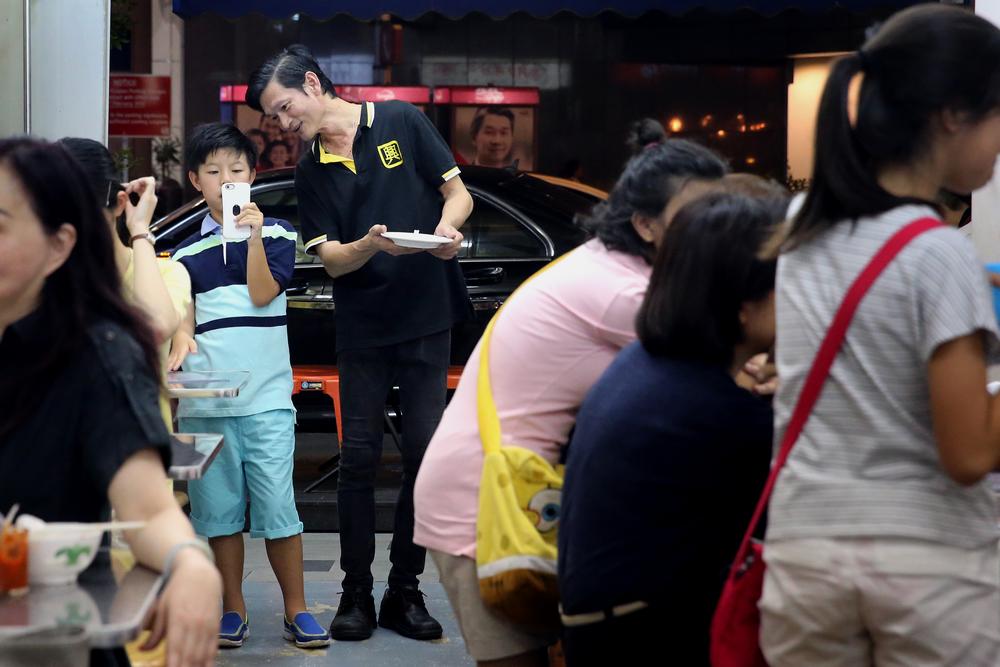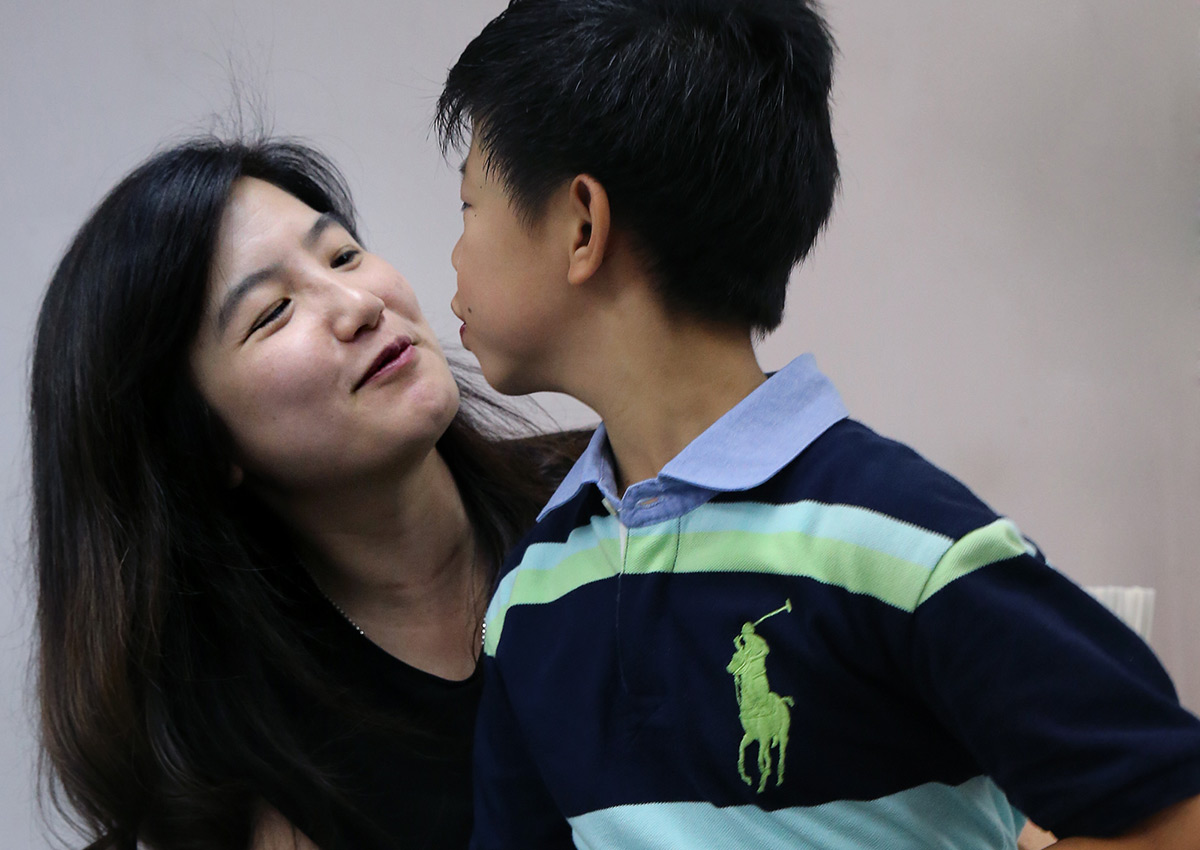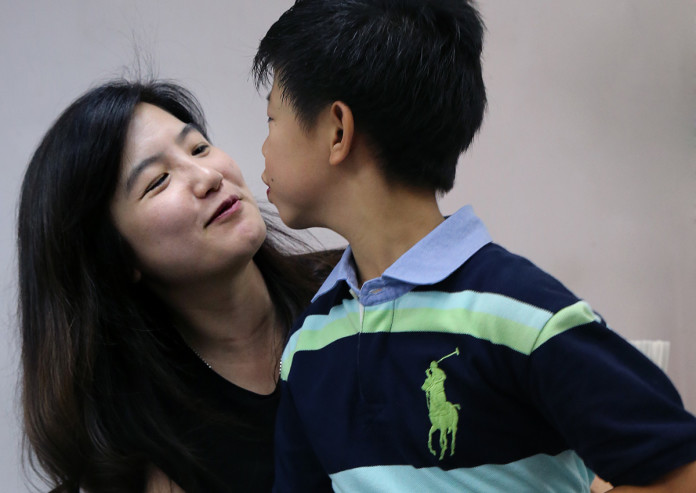SINGAPORE – She is a regular at the 7-Eleven store in Killiney Road because her 10-year-old son, who has Williams syndrome, has been attending speech therapy lessons nearby for more than five years.
And the store employees are aware of the boy’s special needs.
But on Tuesday, Madam Elaine Chan’s encounter with a female customer who objected to her son’s behaviour in the store turned nasty.
The 44-year-old, who works in a bank, said that despite her telling the woman that her son is a child with special needs, the woman verbally abused her, calling her useless for giving birth to him, and called him a b******.
Williams syndrome is a rare genetic disorder that causes learning disabilities and developmental delays in children. Those with the syndrome, however, tend to be sociable, friendly and endearing.
The single mother told The New Paper: “My son loves fans and whenever he sees one, he wants to play with the buttons on it.
“The counter staff at 7-Eleven are very patient. They are fine with my son going into the room behind the counter to let him touch the buttons on the fan.”
But at 8.45pm on Tuesday, the female customer told Madam Chan off for letting her son enter the room.
“I thought she was an off-duty employee, which would sort of give her the right to scold my son,” said Madam Chan.
“I told her he’s a special needs child and usually people would understand. But she replied, ‘All the more you have to control your son.'”
When Madam Chan tried to explain about her son and his special needs, the woman raised her voice and became even more aggressive.
Madam Chan then realised the woman was not a 7-Eleven employee and decided to film her with her smartphone in the hope that it would make her leave. But the woman continued scolding her and called her son a b******.
In the video, the woman, seen to be wearing a straw hat and covering her face with a piece of cloth, yelled at Madam Chan in Mandarin: “You are useless. Why must you give birth to a special needs child?”
She then hit Madam Chan’s hand with her handbag, causing Madam Chan to drop her phone.
“My (11-year-old) daughter started crying because she thought the woman had hurt me, so I went to comfort her,” said Madam Chan.
The loud noises also scared her son and he covered his ears with his hands.
After the woman left the store, a police officer walked in and Madam Chan told the officer about the incident. The officer went to look for the woman, but was unable to find her.
Madam Chan subsequently shared her 37-second video of the incident on a WhatsApp group for parents whose children have Williams syndrome.
Her friend Janet Yeo, who was in the group, later posted the clip on Facebook.
She told TNP: “I was upset that Elaine had to go through this.
“As a parent of a Williams syndrome child myself, I feel sad when my child gets disapproving stares from strangers.
“Labelling them ‘useless and a ‘b******’ is way too much. So I shared the video on Facebook to create awareness and to seek the public’s understanding for special needs children and their parents.”
A report on the incident also went viral on citizen journalism site Stomp, attracting 43,000 views.
Madam Chan said: “I was shocked that someone would use such profanity. This is the first time something like this has happened to me.
“At most, people would give me disapproving stares because my son may be doing things that are unusual.
“But when I explain that Ian is a special needs child, they would understand.”
She said she had seen many negative comments online about the woman, but she did not approve of such comments.
UPSET
“I was upset because she was ignorant and made my daughter cry, but I think we shouldn’t judge her,” said Madam Chan.
“Instead, we should highlight the people who are caring and compassionate towards special needs children because there are a lot of them around.”
Dr Carol Balhetchet, senior director for youth services at the Singapore Children’s Society, said strangers should respect the mother of a child with special needs.
“I think all she wanted to do was make a statement about what was wrong (the boy’s action of going to the room behind the counter), but instead she spiralled into anger and attacked both the mother and her child, which was disrespectful,” she said.
“What she used to label the child is appalling and insensitive. It was uncalled for.”
Dr Balhetchet said that in such cases, people should respect the mother and the child with special needs.
“Leave the mother to deal with the child,” she advised.
“Give them space, and be more sensitive and supportive, and maybe advise the mother to be a bit more careful if their child is running around as they may hurt themselves.”
Worker who indulges boy: Kids are kids

It was the first time such an incident has happened to Madam Elaine Chan. But she has also encountered many caring and compassionate people.
One such person is Mr Joe Liew, 45, who works at Rice Roll And Porridge, a coffee shop two doors away from the 7-Eleven at Killiney Road which Madam Chan and her son frequent.
Her son, 10, who has Williams syndrome, has a tendency to touch the buttons on fans and it annoys most shop owners, she said.
But Mr Liew is one of the rare few who are kind enough to let her son have his way, to Madam Chan’s gratitude.
And Mr Liew is not even aware that the boy has special needs.
He told The New Paper in Mandarin: “No matter what, we cannot scold someone else’s kids or their parents like that. It hurts their dignity.
Imagine how the kids would feel?”
AFFECTED
Mr Liew said what affected him the most was the woman insulting Madam Chan’s parental skills.
“If I were the parent, I would be very sad because how you raise your child is a personal thing,” he said.
Mr Liew, who has worked at the coffee shop for about five months, said he lets the boy play with the fan buttons because “kids are kids”.
“I’m the youngest at home, so I have no younger siblings to play with. I’m always more than happy to play with and be nice to children,” he said.
Kids with Williams syndrome very sociable
The Williams syndrome is a genetic condition that affects many parts of the body.
It is characterised by medical problems, including cardiovascular disease, developmental delays and learning disabilities. These often occur alongside striking verbal abilities, highly social personalities and an affinity for music.
The syndrome affects one in 10,000 people worldwide, and occurs equally in both males and females, and in every culture.
Unlike disorders that can make connecting with your child difficult, children with the Williams syndrome tend to be sociable, friendly and endearing.
But there are also major struggles – many babies have life-threatening cardiovascular problems. Children with the syndrome need costly and ongoing medical care and early interventions (such as speech or occupational therapy).
As they grow, they struggle with things like spatial relations, numbers and abstract reasoning, which can make daily tasks a challenge.
As adults, most people with the Williams syndrome need supportive housing to live to their fullest potential. Many contribute to their communities as volunteers or paid employees.
Source: Williams Syndrome Association

This article was first published on Nov 05, 2016.
Get The New Paper for more stories.


 Photo Gallery
Photo Gallery




